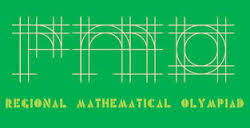Indian Regional Mathematical Olympiad Problem 2
 Let
f
(
x
)
=
x
3
+
a
x
2
+
b
x
+
c
and
g
(
x
)
=
x
3
+
b
x
2
+
c
x
+
a
, where
a
,
b
,
c
are integers with
c
=
0
. Suppose that the following conditions hold:
(a)
f
(
1
)
=
0
;
(b) the roots of
g
(
x
)
=
0
are the squares of the roots of
f
(
x
)
=
0
.
Find the value of
a
2
0
1
3
+
b
2
0
1
3
+
c
2
0
1
3
.
Let
f
(
x
)
=
x
3
+
a
x
2
+
b
x
+
c
and
g
(
x
)
=
x
3
+
b
x
2
+
c
x
+
a
, where
a
,
b
,
c
are integers with
c
=
0
. Suppose that the following conditions hold:
(a)
f
(
1
)
=
0
;
(b) the roots of
g
(
x
)
=
0
are the squares of the roots of
f
(
x
)
=
0
.
Find the value of
a
2
0
1
3
+
b
2
0
1
3
+
c
2
0
1
3
.
The answer is -1.
This section requires Javascript.
You are seeing this because something didn't load right. We suggest you, (a) try
refreshing the page, (b) enabling javascript if it is disabled on your browser and,
finally, (c)
loading the
non-javascript version of this page
. We're sorry about the hassle.
3 solutions
Very neat solution, upvoted !
@Parth Lohomi you have also posted this question before.
Good one,upvoted!
by relationship between a,b and c we get
a+b+c=-1
b=a^2
-a=c^2
therefore c^4-c^2+c+1=0
its 1 root is -1
therefore a=c=-1 and b=1
hence answer=-1+1-1=-1
considering the roots of f(x)=0, as p,q and r- we see the roots of g(x)=0 as 1/p, 1/q and 1/r. Also, i) p+q+r=-1 ii) 1/p, 1/q and 1/r is same as p^2, q^2 and r^2. iii) fact that pqr is not 0. two of them are -1 and remaining is 1.
So c = − ( a + b + 1 ) . Then f ( x ) = ( x − 1 ) ( x 2 + ( a + 1 ) x + ( a + b + 1 ) ) and g ( x ) = ( x − 1 ) ( x 2 + ( b + 1 ) x − a ) Let 1 , u , v be the roots of f . It follows − ( b + 1 ) = u 2 + v 2 = ( u + v ) 2 − 2 u v = ( a + 1 ) 2 − 2 ( a + b + 1 ) , whence b = a 2 , and − a = u 2 v 2 = ( a + b + 1 ) 2 , whence a = − c 2 . It follows 0 = 1 + a + b + c = 1 − c 2 + c 4 + c = ( c + 1 ) ( c 3 − c 2 + 1 ) , whence c = − 1 , and so a = − 1 and b = 1 . Therefore a 2 0 1 3 + b 2 0 1 3 + c 2 0 1 3 = − 1